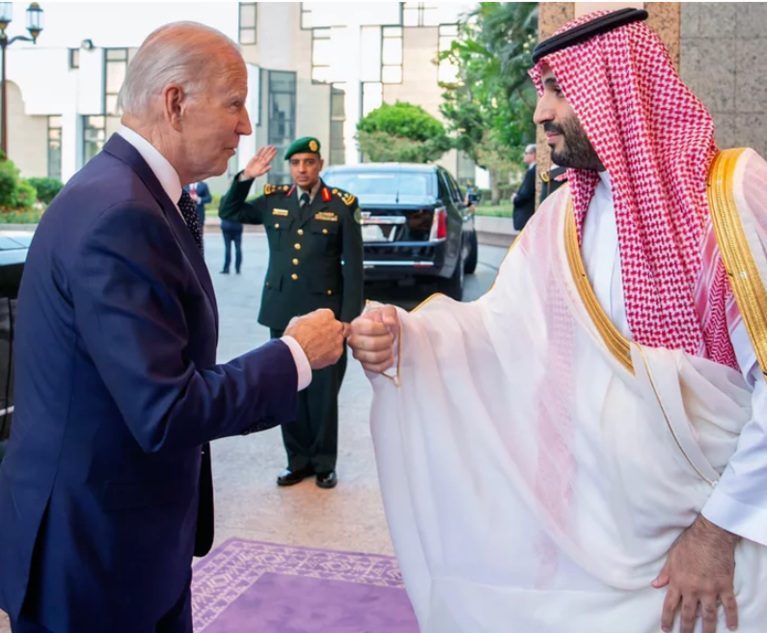Saudi Arabia is gaining momentum in its bid to rival the UAE as a centre for legal activity, as so-called giga-project, ‘The Line,’ is fleshed out with a new legal framework, promising dramatic improvements in the standard of legal work up and down the Kingdom.
Last month, the Law Society of England and Wales published a note saying that law firms acting there through associations would need to change their business operations, following amendments to the Saudi code of law practice. The measures are designed to “encourage firms to set up in [Saudi Arabia], so legal work is engineered [domestically] rather than outside the country”, and to “enable high-profile deals to stay within [the Kingdom], rather than be taken abroad”.
Branch offices now appear to be possible for global law firms, increasing Riyadh’s attractive as a centre for legal activity, according to Eversheds Sutherland. DWF underlined its renaissance with the opening of a branch office in Riyadh last year, in what now appears to have been a special dispensation.
And last October, de facto ruler, the Crown Prince, announced that he intended to oversee a $7 trillion of investment in by the government and international businesses in the economy in the decade to 2031.
Chinese President Xi Jinping is expected to visit Riyadh later this year—China remains Saudi Arabia’s largest oil export partner. The visit will be in sharp contrast to President Biden’s July trip, which served to underline how uneasy his working relationship with Crown Prince Mohammed bin Salman was.
So does this all mean that Saudi Arabia is soon to become not only the number one destination for law firms in the Middle East, but also an essential hub for generating revenue?
Significant dependence
The importance of the Middle East to international law firms is growing.
The majority of large international law firms already have a presence in the region, at a minimum in Dubai, while others administer multiple locations.
“There have been a number of reminders recently that illustrate how important the Middle East region is globally,” Tawfiq Tabbaa, Middle East managing partner at Eversheds Sutherland told Law.com International. “The events in Europe and elsewhere, for example, have proved the significant dependence that much of the world continues to have on oil and gas.”
Investment continues to pick up, as governments spend on and invest in infrastructure and large projects in the Middle East. In the first six months of 2022, most of those governments reported a significant surplus in their budgets, further buoyed by a windfall of oil revenues.
“Law firms generally understand that the many developments and opportunities coming to fruition in the Middle East are a very important journey to be part of,” Tabbaa said.
He added that the region’s sovereign wealth funds were looking for opportunities abroad, and continuing high oil prices would only feed their appetite for overseas deals.
Increasingly sophisticated market
“It’s an increasingly sophisticated market, with demand for cross-border and international legal advice from multinational corporations, financial institutions and high-net-worth-individuals and their families,” said Rania Tadros, Dubai office managing partner, Stephenson Harwood.
The International Monetary Fund has predicted that the region will gain an extra $1.3 trillion from extra oil revenues alone over the next four years, which means that there is an abundance of capital to be invested into new projects and businesses across the region, said Sachin Kerur, Reed Smith’s Middle East managing partner.
“All this is translating into high levels of demand for support on transactions and regulatory matters. I can only see this increasing. Additionally, demand for our dispute resolution services is very high as businesses have built up war chests or are attracting litigation funding support,” he said.
“There is more interest in the region than ever before. While major global economies have hit severe economic headwinds as stimulus provided during the peak of the pandemic is withdrawn, the Middle East and the Gulf Cooperation Council are experiencing growth in key economic and industrial sectors.”
Saudi Arabia’s place in the global legal market today
In the spring of this year, an exciting legal milestone was realized, Tabbaa said, with the issuance of a new regulation allowing foreign law firms to operate in the Kingdom of Saudi Arabia, either by forming a joint venture with local law firms or lawyers, or through the creation of branch offices.
“Previously, international law firms had to operate in affiliation with other local law firms. This new development is therefore likely to significantly alter the shape of the current legal market,” he said.
He predicts several JVs being incorporated between international law firms, local lawyers and branch offices. “This will, in turn, further cement Saudi Arabia’s importance and role in the global legal market and I think we’ll see increased investment from international law firms into the region as a result.”
Tadros said giga projects Neom, Amaala, and the Red Sea Development Project, part of the Vision 2030 diversification drive, would ensure Saudi Arabia remained an important player in the global legal market. “These are extremely important projects and are set to drive foreign investments and increase spending in the economy, as the Kingdom is expecting $7 trillion in investment and government spending to materialize by the end of the decade,” she said.
Focus areas for law firms based in the region today
The main areas of economic focus across the region are energy and natural resources, financial services, transportation, life sciences and healthcare, and entertainment and media, Kerur said.
“Natural resources and infrastructure remain the region’s main economic drivers but diversification is coming quickly and law firms with the expertise to support these growing industries should do well.”
Project work generally, whether energy, water or infrastructure-related, will remain a large focus for many international law firms, while other areas include M&A and transaction work, Tabbaa said.
“Again, governments haven’t necessarily been affected by the events and crises happening in much of the world. On that basis, there have been a lot of interesting deals taking place in the region, including initial public offerings and other financings,” he said. “Arbitration is another area of focus, whether that’s commercial, construction, investment treaty, or investment protection.”
Tadros is encouraged by the blossoming talent pool in the region, especially in terms of home-grown expertise, on both the legal and commercial sides. “There’s also been a notable uptick in the number of talented employees from abroad, tempted by the increasing focus on gender equality, the success of recent international events in the region, and the continued investment in advanced technological infrastructure.”
NOT FOR REPRINT
© 2024 ALM Global, LLC, All Rights Reserved. Request academic re-use from www.copyright.com. All other uses, submit a request to [email protected]. For more information visit Asset & Logo Licensing.










